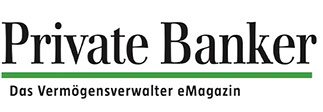

Value Column von Hans Peter Schupp
16 FEBRUARY 2024
Value approach, no need to fix it!
If an electrical appliance is out of order, it usually will be repaired or replaced. That makes sense and is understandable. But what do you do with an investment approach that has worked for almost a hundred years but then stops working for a few years? The same thing?
Value is alive, even without adding fancy attributes
In fact, we are talking about the value investment approach. It had a hard time against growth with the tech giants Microsoft & Co. They have dominated the last few years and made billions in profits. And are still doing so today. But does that mean value is dead? No, not at all! Because in the last three years or so, value has performed very well, as our Fidecum Contrarian Value Euroland fund has shown.
„New“? „Modern“? „Buffett“?
Nevertheless, many asset managers believed they needed to „modernize“ or, to use a comparative term, „repair“ their value investment style. From then on, they called their investment approaches „New Value“, or „Modern Value“ and „Buffett Value“. This usually meant that cyclical stocks such as basic materials and industrial companies were banned from the portfolios. True to the motto: „This is mainstream and sells well.“
The world needs a lot of industry
But let’s take a step back. Can we survive at all without raw materials and industrial companies? Of course not! So there must be a price for these unloved but vital sectors. But if these industries are even shunned by many value investors, then their price does not seem to be overvalued. This is why our Fidecum Contrarian Value Euroland fund is invested in these sectors in particular. After all, a value investment says nothing about the future viability of an industry, but only about the price that is paid for it.
We look at companies as if we owned them completely
And this is where our investment philosophy comes into play. We follow a value-oriented investment approach. It consists of finding companies within the selected investment universe that are significantly undervalued in terms of their net asset value or earnings value and are often not in the focus of investors. In addition, the investment concept is based on the following central assumption: that of a theoretical real investment. We analyze and value a company as if we owned it as a whole and not just some of its shares. This additional investment criterion leads to a medium to long-term view of the investment, far beyond a pure equity investment.
A P/E ratio of above 30? No thanks, the risk is too high – 6.5 is better, it’s a much quieter life!
Contrarian value is an active investment approach characterized by fundamental analysis, which we have been using successfully for over fifteen years and which leads to above-average performance in the medium term. The Fidecum Contrarian Value fund diversifies large portfolios not only across the asset class, but also within the equity asset class over the time axis. It therefore has a the calming impact alongside opportunity-oriented or opportunistic investments and a reliable factor in the portfolio for anyone for whom investing in trends adds too much uncertainty.
We also minimize the risks in our portfolio. With P/E valuations of 30 and above, companies have to constantly stretch themselves to the limit in order to continue meeting the growth expectations attached to them. And if those do not materialize, the risk of sharply falling stock prices is very high. We prefer to be on the safe side: the average P/E ratio in our fund is around 6.5, which makes lif a lot calmer.
Translation for convenience only!
The author: Hans Peter Schupp is a board member of FIDECUM AG and portfolio manager of the Contrarian Value Euroland fund.

